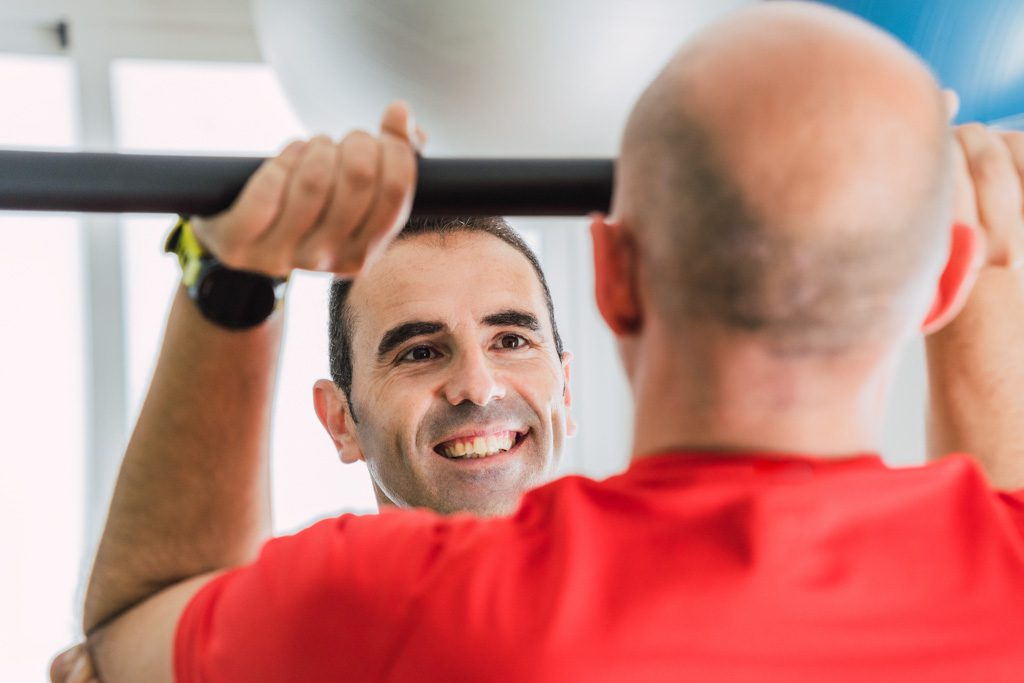When I was selling treadmills, I didn’t sell many.
Actually, I sold none.
I was a know-it-all technical expert who couldn’t wait to barf my supreme knowledge of cardiovascular systems and heel-strike problems onto everyone who walked into my store.
I didn’t have any bad intent, but I was definitely a barrier to fitness because nobody wanted to buy a treadmill from me.
I made fun of our competitors, I took shots at elliptical trainers, and I rolled my eyes at running on the road.
“You wanna wear out your knees? Go for it. These machines are for people who care about their health.”
Then a coworker gave me the book “How to Win Friends and Influence People” by Dale Carnegie. He had gotten it from his church. The book changed my life. I began listening to others instead of trying to impress them with my knowledge. I tried seeing things from their perspectives. I became generally interested in their goals. I remembered their names. I put myself in their shoes. I started to really care.
And I started to sell treadmills.
Years later, I used the same lessons to sign up personal-training clients galore. I built the No Sweat Intro on the principles of asking questions and making a caring prescription. Later, I wrote “Help First” to teach others to think about how to help people instead of how to sell them.
Here are my favorite six lessons from “How to Win Friends and Influence People”:
1. Never criticize, condemn or complain. This is so important that it’s a core value at Two-Brain Business. We do not attack our competitors or anyone else—even when they copy us, attack us onstage or try to argue on social media. Why? Because if I’ll speak negatively about someone, I’ll probably speak negatively about anyone.
2. Give honest and sincere appreciation. When you thank someone—which should be often—stop and think about why you’re grateful to them. Then go deep: Tell them how their help or advice has made a real difference to you. As you get better at this, you’ll actually go out of your way to thank people. When I’m stressed or distracted, my go-to strategy is to sincerely thank 10 people. By the time I’ve sent out 10 texts or voice messages, I’m no longer angry.
3. Speak in terms of the other person’s interests. Nobody cares what you want; we all care about what we want. This is a common mistake with people trying to sell CrossFit or Muay Thai: To a new client, the method is secondary. It’s just a tool that might (or might not) get them what they want. Always start by asking what someone wants. Then, if your method can help them, tell them how they will reach their goals with you. This is one reason free trials no longer work in CrossFit and martial-arts gyms.
4. Remember names. This seems simple, but it’s critical. I’ve taken courses from memory world champions to help me remember names better.
5. Be interested instead of interesting. Dale Carnegie’s wisdom: “You can make more friends in two months by being interested in them than in two years by making them interested in you.”
6. Avoid arguments. Look, nobody wins in an argument online. Anger is like a freight train—it goes fast, it builds momentum, and it doesn’t change course easily. The problem with arguments on Facebook is that everyone sees your fight. While some of your superfans might support you, most people are repelled by vicious arguments and political opinions. You really can’t win in an online argument—but you can definitely lose.
Constant Self-Improvement
Now I read “How to Win Friends and Influence People” every year. I keep a dozen copies in my office to give away. I hand it to all family members when they graduate high school.
While almost every coach I know is interested in learning more about fitness or rehab or motivation, very few pursue likability.
But being likable is one of the best ways to keep clients around long enough to teach them about all the other stuff you love to talk about.

